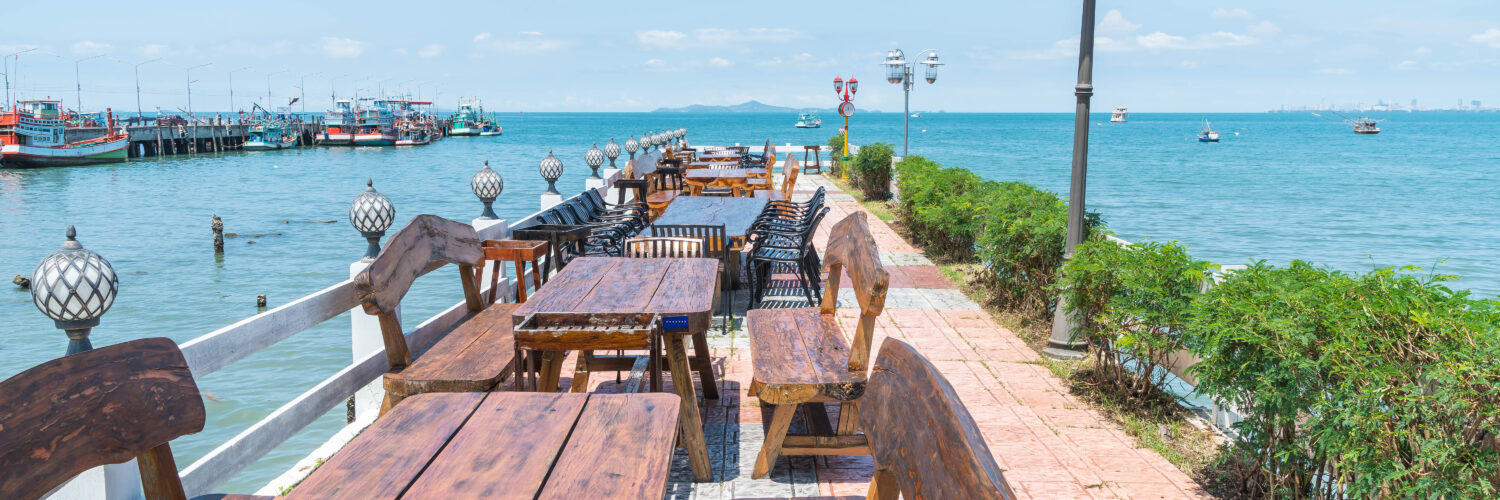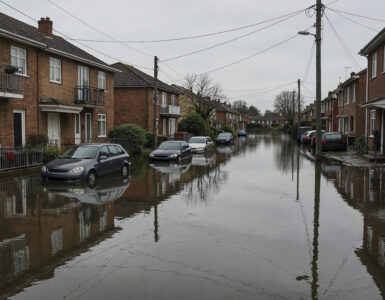The Unique Appeal and Risks of Waterfront Dining
Waterfront restaurants have long been among Florida’s most sought-after dining destinations. Whether situated along a marina, a beachfront boardwalk, or a scenic riverfront, these establishments draw both locals and tourists eager to enjoy exceptional views, fresh air, and a relaxing atmosphere. The combination of scenic beauty and vibrant dining experiences gives these restaurants a competitive edge. However, the very elements that create their appeal also introduce a set of unique and often unpredictable risks that standard restaurant insurance policies may not fully address.
Storm surge and coastal flooding pose some of the most significant threats to waterfront establishments. Sudden tropical storms or hurricanes can result in extensive property damage, affecting both the building and outdoor amenities such as patios, docks, or gazebos. Beyond structural damage, the electrical and mechanical systems, as well as kitchen and bar equipment, are highly vulnerable to water intrusion. For this reason, specialized coverage such as restaurant equipment insurance coverage Florida becomes essential. This type of policy protects critical appliances, refrigeration units, cooking machinery, and other operational equipment from damage caused by covered events, ensuring that business operations can resume more quickly after a loss.
Slip-and-fall hazards are another prominent concern for waterfront locations. Wet decks, slippery docks, and uneven outdoor flooring increase the likelihood of customer or employee accidents. Liability claims arising from these incidents can be financially devastating if the restaurant does not have comprehensive liability coverage that accounts for the unique environment of a waterfront property.
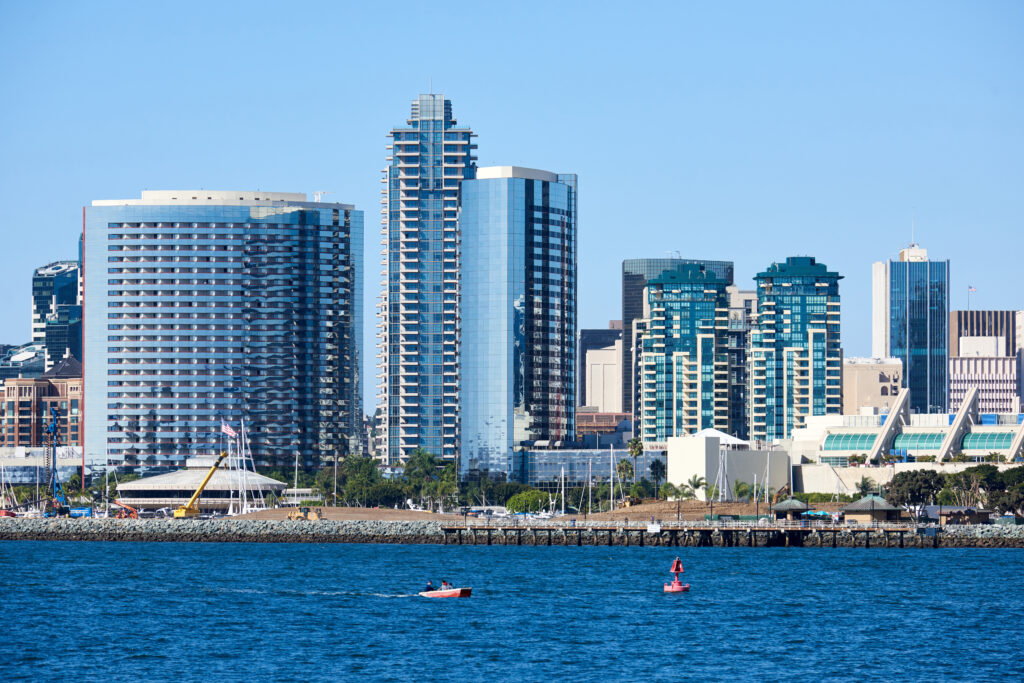
Common Risk Exposures for Waterfront Restaurants
Waterfront restaurants present a unique set of risk exposures that differ significantly from inland dining establishments. Understanding these risks is essential for owners who want to safeguard their property, staff, and revenue streams.
Flooding and Storm Surge
Florida’s coastal geography makes waterfront restaurants particularly susceptible to hurricanes, tropical storms, and tidal flooding. Even a relatively minor storm can lead to water intrusion, damaging structural foundations, outdoor seating areas, and critical kitchen or bar equipment. Standard commercial property insurance often excludes flood damage, which means owners may need additional flood insurance or enhanced policies that include restaurant equipment insurance coverage Florida. This coverage protects essential appliances and machinery, allowing restaurants to recover quickly and resume operations after water-related damage.
Outdoor Dining Hazards
Many waterfront restaurants incorporate docks, decks, or expansive patios that provide diners with scenic views but also introduce physical hazards. Slippery surfaces, uneven walkways, and exposure to rain or tidal spray increase the likelihood of slips, trips, and falls. Liability claims arising from such accidents can be expensive, especially if injuries require long-term medical care or result in lost wages. Comprehensive liability coverage is essential to protect against these risks, and policies should consider the unique challenges of outdoor waterfront environments.
Fire and Kitchen Hazards
Salt air and high humidity common in waterfront locations can accelerate corrosion and wear on restaurant equipment. This increases the risk of mechanical failures, electrical malfunctions, or even fires in the kitchen. Maintaining and protecting equipment in these environments is critical, and restaurant equipment insurance coverage Florida ensures that replacements or repairs are financially manageable when unexpected breakdowns occur. Proper coverage can also support the replacement of specialized outdoor cooking units or refrigeration systems affected by the corrosive coastal environment.
Employee Injuries
Operating a waterfront restaurant often requires a larger staff to manage both indoor and outdoor areas, accommodate fluctuating tourist crowds, and handle deliveries or boating-related logistics. With more employees, the likelihood of workplace injuries rises—from slips on wet decks to lifting heavy supplies or operating complex kitchen machinery. Workers’ compensation coverage is vital in this context, protecting employees while shielding owners from potentially costly legal claims.
Business Interruption
Severe weather, flooding, or equipment failure can force temporary closures, halting revenue while repair costs accumulate. Without business interruption insurance, waterfront restaurants risk significant financial losses. Integrating property, liability, and restaurant equipment insurance coverage Florida into a comprehensive insurance plan ensures that restaurants can maintain financial stability during unplanned downtime and resume serving guests as quickly as possible.

Essential Insurance Coverages for Waterfront Restaurants
Waterfront restaurants face a combination of environmental, operational, and liability risks that demand a comprehensive and tailored insurance approach. The following coverages are critical to protecting both property and business continuity:
Commercial Property Protection
Waterfront locations are particularly vulnerable to wind, water, and corrosion damage. High humidity, salt air, and exposure to storms can quickly degrade building structures, outdoor seating, and specialized kitchen equipment. Comprehensive restaurant equipment insurance coverage Florida ensures that critical assets, from refrigeration systems and cooking appliances to outdoor furniture and dock facilities, can be repaired or replaced promptly after a covered loss. This coverage is essential for minimizing downtime and protecting the significant investment in restaurant infrastructure.
General Liability Coverage
Slip-and-fall incidents are a common risk for any restaurant, but waterfront establishments face heightened exposure due to wet decks, uneven walkways, and dock areas. General liability insurance provides protection against customer injuries, property damage claims, and even reputational harm if incidents become public. For waterfront restaurants, this coverage is often expanded to address the unique hazards of outdoor dining and waterfront access points.
Workers’ Compensation Insurance
Florida law mandates that most businesses with four or more employees carry workers’ compensation coverage. Waterfront restaurants, which often rely on larger seasonal or part-time teams, must comply to protect both staff and owners. This insurance covers medical treatment, lost wages, and rehabilitation for employees injured on the job, mitigating the financial burden of workplace accidents in a high-risk environment.
Flood and Windstorm Coverage
The hurricane-prone climate of Florida makes separate flood and windstorm insurance essential for waterfront restaurants. Standard property policies frequently exclude these events, leaving owners exposed to catastrophic repair bills. Flood and windstorm coverage safeguards structures, outdoor facilities, and valuable equipment, providing financial relief after severe weather events.
Business Interruption Insurance
Even a brief closure during peak dining seasons can result in substantial revenue loss. Business interruption insurance compensates for lost income and ongoing operating expenses during unexpected downtime, whether caused by storms, equipment failure, or other covered perils. Coupled with restaurant equipment insurance coverage Florida, this coverage allows waterfront restaurants to recover quickly and maintain financial stability while operations are restored.
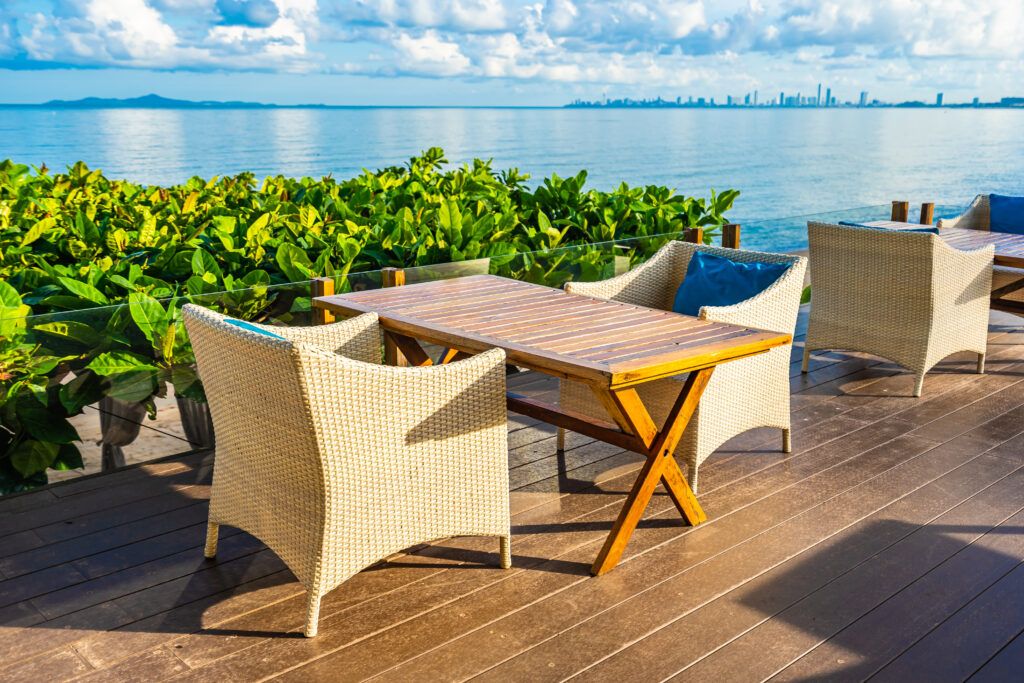
Regulatory and Compliance Considerations
Florida’s waterfront restaurants operate in a complex regulatory environment that extends beyond standard insurance requirements. Owners must navigate local and state building codes, health and safety regulations, liquor licensing laws, and labor standards, all of which can influence insurance eligibility, coverage limits, and premiums. For example, insurers frequently assess whether a restaurant has implemented safety features such as non-slip flooring, properly maintained handrails, and hurricane-resistant structural elements before offering or pricing policies.
Compliance plays a direct role in mitigating both operational and financial risks. Restaurants that meet or exceed regulatory standards are often better positioned to secure comprehensive coverage, including restaurant equipment insurance coverage Florida, ensuring that vital kitchen machinery and other operational assets are protected against damage from storms, corrosion, or other hazards.
The U.S. Small Business Administration (SBA) recommends that coastal businesses develop and maintain disaster preparedness plans. These plans should integrate both safety measures and insurance strategies, combining proactive risk management with financial protection. By documenting maintenance schedules, staff training, and emergency procedures, waterfront restaurants can not only reduce the likelihood of accidents or equipment failure but also demonstrate to insurers a commitment to risk mitigation. This proactive approach can result in more favorable insurance terms, lower premiums, and faster claims processing in the event of a loss.
Risk Management Strategies for Waterfront Restaurants
Waterfront restaurants face unique operational challenges that require proactive risk management strategies. Implementing systematic procedures not only reduces accidents and property damage but also supports insurance claims and can lower premiums.
Staff Training Programs
Proper staff training is one of the most effective ways to reduce accidents and strengthen a restaurant’s claims defense. Employees should receive instruction on safe food handling, proper lifting and carrying techniques, and responding effectively to customer accidents or equipment malfunctions. Training should also address waterfront-specific hazards, such as wet decks, dock access, and outdoor cooking operations. Well-trained staff help prevent injuries and protect critical equipment, complementing restaurant equipment insurance coverage Florida by reducing the likelihood of claims.
Preventive Maintenance
Regular inspections and upkeep of outdoor decks, walkways, patios, and kitchen equipment are essential. Waterfront environments accelerate wear and tear due to saltwater corrosion, humidity, and constant exposure to the elements. Timely maintenance can prevent costly equipment breakdowns, structural damage, or slip-and-fall incidents, ultimately supporting claims management and ensuring that insurance coverage, including restaurant equipment insurance coverage Florida, functions as intended when needed.
Emergency Preparedness
Developing a comprehensive storm and emergency response plan is critical for waterfront operations. Plans should include procedures for sandbag placement, evacuation routes, securing outdoor furniture and equipment, and backup power systems. According to the Insurance Information Institute (III), preparedness is one of the most effective ways to reduce post-disaster financial loss. Integrating these measures with insurance strategies ensures that restaurants can recover more quickly after severe weather events.
Customer Safety Measures
Protecting guests in waterfront environments requires visible and practical safety measures. Posting warnings about wet surfaces, installing slip-resistant flooring, maintaining adequate lighting, and providing handrails on decks and docks all help reduce liability exposure. These precautions not only prevent accidents but also demonstrate to insurers that the restaurant takes proactive steps to minimize risks, which can positively impact policy terms and coverage for both property and equipment.
By combining staff training, preventive maintenance, emergency preparedness, and customer safety measures, waterfront restaurant owners create a robust risk management framework. When paired with comprehensive coverage, including restaurant equipment insurance coverage Florida, these strategies help protect both business operations and financial stability in the face of Florida’s coastal challenges.
Industry Insights and Best Practices
According to the National Restaurant Association (NRA), restaurants located near coastal or high-moisture environments face unique operational challenges that demand proactive risk management. Regular inspections, corrosion prevention, and investment in durable materials are essential steps to minimize equipment failure and liability exposure. The NRA also emphasizes the importance of integrating staff safety protocols and property maintenance schedules into daily operations, especially for restaurants with outdoor dining areas or waterfront access. By aligning with these best practices and maintaining comprehensive protection such as restaurant equipment insurance coverage Florida, owners can strengthen both safety compliance and financial resilience.

Technology and Equipment Upgrades as Risk Mitigation
Investing in modern technology and high-quality equipment is a proactive way for waterfront restaurants to reduce both operational risks and insurance claims. Upgrading to corrosion-resistant appliances, automated temperature monitoring systems, and energy-efficient refrigeration units not only improves performance but also minimizes the likelihood of equipment failure due to salt air, humidity, or storm-related damage. Integrating these upgrades with restaurant equipment insurance coverage Florida ensures that, in the event of an unavoidable breakdown or storm, repairs or replacements can be completed quickly without significant revenue loss. Additionally, smart monitoring systems can alert staff to early signs of mechanical or structural issues, preventing costly accidents and supporting safer operations for employees and guests alike. By treating technology and equipment as integral elements of risk management, waterfront restaurant owners can protect both their investment and their bottom line.
The Financial Case for Enhanced Coverage
For waterfront restaurants in Florida, the financial stakes of inadequate insurance coverage can be exceptionally high. While the cost of enhanced insurance may appear substantial at first glance, the consequences of insufficient protection are far greater. A single flooding event, storm surge, or liability claim can easily exceed six figures, potentially erasing years of accumulated profit. Given that restaurants typically operate on thin profit margins, risk transfer through comprehensive insurance is not merely advisable, it is essential.
Enhanced coverage provides waterfront restaurants with several critical financial benefits:
- Preserve Profitability During Unexpected Closures
Severe weather, equipment breakdowns, or accidents can force temporary shutdowns. Business interruption coverage, combined with restaurant equipment insurance coverage Florida, ensures that revenue losses and ongoing expenses are mitigated, preserving the restaurant’s financial stability during recovery periods. - Maintain Customer Trust After Accidents or Property Damage
Liability claims from slip-and-fall incidents, dock hazards, or equipment malfunctions can damage a restaurant’s reputation. Comprehensive general liability and equipment coverage allow owners to address claims swiftly, repair damaged property, and continue serving customers without long-term reputational harm. - Continue Operations Despite Seasonal Weather Disruptions
Florida’s waterfront establishments face frequent storms, hurricanes, and high tides. Enhanced insurance policies help cover repairs and equipment replacement, enabling restaurants to reopen quickly and minimize revenue loss during peak tourist seasons. - Protect Long-Term Investments in Prime Waterfront Real Estate
Waterfront locations represent significant capital investment, including outdoor structures, dock facilities, and specialized kitchen and bar equipment. Policies that include restaurant equipment insurance coverage Florida protect these assets against corrosion, storm damage, or mechanical failure, safeguarding both operational capacity and long-term property value.
In essence, enhanced insurance coverage transforms what might seem like a recurring expense into a critical financial safety net. For waterfront restaurants, it not only shields physical assets and equipment but also supports business continuity, employee protection, and customer confidence. By investing in robust policies, owners reduce the likelihood of catastrophic losses and secure the long-term viability of their establishments in Florida’s dynamic coastal environment.
Actionable Steps for Restaurant Owners
Owners of waterfront restaurants in Florida face a distinctive set of operational and environmental challenges. To safeguard their investments and maintain business continuity, they should take proactive steps to strengthen their insurance strategy:
- Review Existing Policies for Critical Exclusions
Owners should carefully examine current insurance policies to identify gaps, particularly related to flood, windstorm, hurricane, and business interruption coverage. Many standard commercial policies exclude these perils, leaving restaurants vulnerable to costly claims. - Request a Professional Risk Assessment
Engaging an experienced insurance professional to conduct a thorough risk assessment can reveal overlooked vulnerabilities. This includes evaluating structural integrity, outdoor dining areas, dock facilities, and critical kitchen equipment. Understanding these risks allows owners to select coverage that truly matches the unique waterfront environment. - Invest in Comprehensive Property and Equipment Coverage
Securing restaurant equipment insurance coverage Florida is essential for protecting refrigeration units, cooking machinery, and other critical assets from damage due to storms, corrosion, or mechanical failure. Tailored policies ensure that essential operations can continue with minimal disruption, even after unexpected events. - Confirm Compliance with Workers’ Compensation Requirements
Florida law mandates workers’ compensation insurance for most businesses with four or more employees. Waterfront restaurants, which often employ seasonal or part-time staff, must maintain compliance to protect employees and shield owners from potentially costly claims. - Explore Custom Restaurant Insurance Plans
Owners should consider customized insurance solutions that account for both current operations and future growth. Bundled policies can combine general liability, property protection, equipment coverage, workers’ compensation, flood, windstorm, and business interruption insurance, simplifying administration while providing comprehensive protection.
By taking these actionable steps, waterfront restaurant owners can minimize risk, protect critical assets, and ensure that their business remains operational and financially secure. When paired with professional guidance, these measures help leverage insurance not just as a regulatory requirement, but as a strategic tool for long-term success.
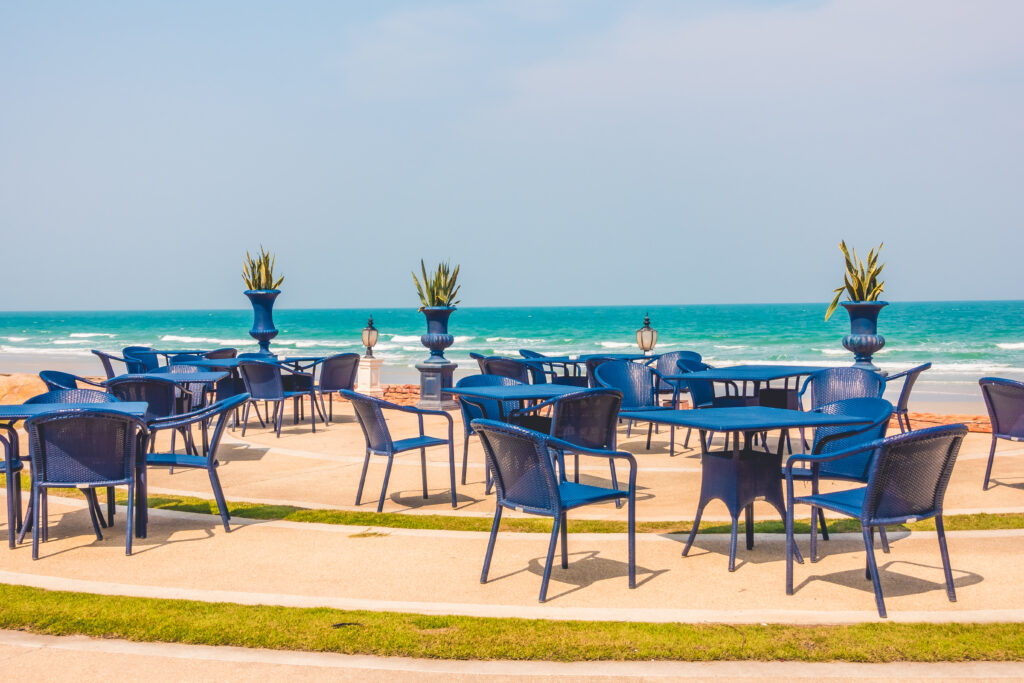
Leveraging Insurance Reviews for Continuous Protection
Regular insurance reviews are a crucial part of maintaining a waterfront restaurant’s financial and operational security. Business operations, equipment inventories, and risk exposures change over time, and policies that were sufficient a year ago may no longer provide adequate protection. By conducting periodic reviews with a knowledgeable insurance professional, restaurant owners can ensure that their coverage, including restaurant equipment insurance coverage Florida, keeps pace with new investments, seasonal staffing changes, or expanded outdoor facilities. These reviews also provide an opportunity to identify gaps, adjust liability limits, and integrate additional protections such as flood, windstorm, or business interruption coverage. Ultimately, proactive policy management helps waterfront restaurants remain resilient in the face of evolving risks while optimizing insurance costs and minimizing financial surprises.
The Role of Third-Party Vendors and Contractors
Managing External Partnerships to Minimize Liability
Waterfront restaurants in Florida frequently depend on third-party vendors and contractors for essential services such as food and beverage deliveries, HVAC maintenance, dock repairs, and outdoor equipment installation. These external partnerships are indispensable for maintaining operations and ensuring guest satisfaction, but they also introduce additional layers of liability and equipment risk. Unlike internal operations, where management maintains direct oversight—third-party activities can expose the restaurant to claims arising from accidents, property damage, or service disruptions.
A delivery truck backing into a storage area, a maintenance technician damaging refrigeration units, or a contractor leaving debris on a wet dock can all trigger liability issues or lead to costly repairs. Without proper contractual protections and insurance alignment, the financial impact of these incidents may fall directly on the restaurant. This is where comprehensive coverage, particularly restaurant equipment insurance coverage Florida, becomes vital. It ensures that essential assets, such as commercial refrigerators, cooking ranges, dishwashing units, and outdoor bar systems, are protected even when damage results from third-party negligence or unforeseen service errors.
Establishing Clear Contracts and Insurance Requirements
To reduce exposure, waterfront restaurant owners should implement detailed vendor and contractor agreements that outline each party’s responsibilities and insurance obligations. These contracts should specify minimum liability coverage limits, name the restaurant as an additional insured party, and require proof of active insurance before work begins. Doing so not only protects the business from direct liability but also strengthens its position in the event of a dispute or claim.
Regularly reviewing vendor relationships is equally important. Restaurants that engage multiple service providers, especially for outdoor areas exposed to salt air and moisture, should verify that each vendor’s insurance remains active and sufficient to cover potential damages. Combining these contractual safeguards with restaurant equipment insurance coverage Florida provides a strong layer of financial defense, ensuring that any physical damage or operational interruption caused by third parties does not threaten the restaurant’s long-term stability.
Integrating Vendor Oversight into Risk Management
Incorporating vendor oversight into the restaurant’s broader risk management plan promotes accountability and consistency. Periodic inspections, clear communication protocols, and updated safety training for external workers can prevent accidents before they occur. By holding vendors to the same safety and maintenance standards applied to in-house staff, waterfront restaurant owners can maintain compliance, reduce claims frequency, and reinforce a culture of prevention.
Ultimately, successful management of third-party relationships depends on a blend of proactive oversight and comprehensive protection. With well-structured contracts, diligent monitoring, and the backing of restaurant equipment insurance coverage Florida, waterfront restaurants can confidently rely on their vendors and contractors without compromising safety, operations, or profitability.
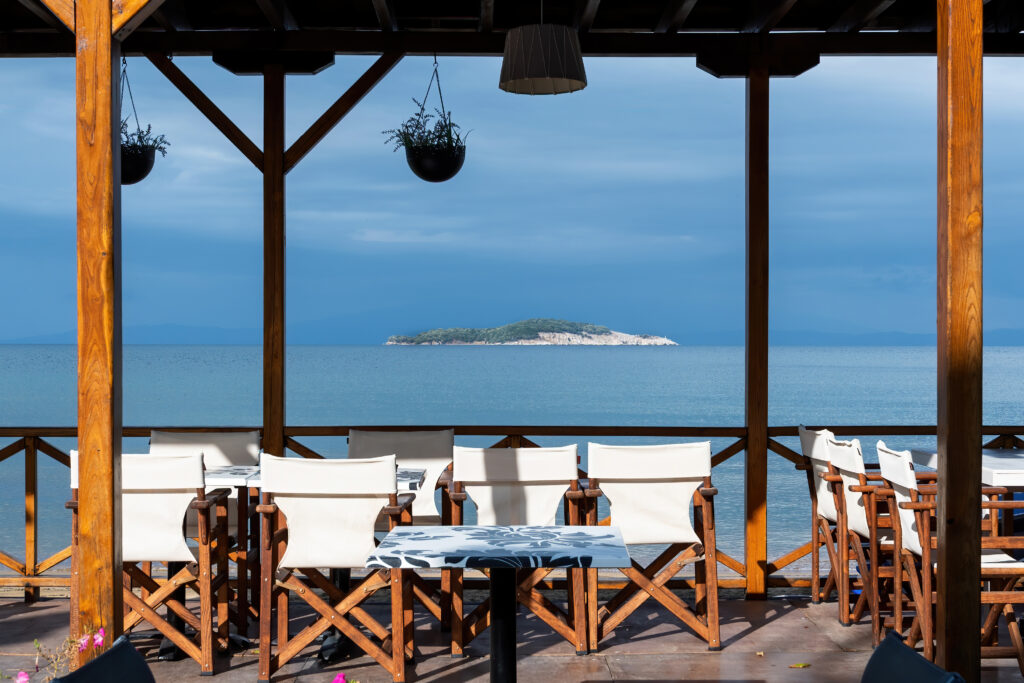
Taking the Next Step Toward Protection
Florida’s waterfront dining scene is more than a hallmark of the state’s culture, it’s a driving force in its economy and tourism industry. From beachside cafés to upscale marina restaurants, these establishments embody the spirit of coastal hospitality. Yet, the same elements that make them so appealing, proximity to water, open-air designs, and scenic outdoor seating, also leave them exposed to heightened risks. Without enhanced and specialized insurance protection, a single flood, storm surge, or equipment breakdown could disrupt operations and jeopardize years of investment.
To ensure long-term success, waterfront restaurant owners must move beyond basic insurance and embrace comprehensive protection specifically designed for coastal operations. That includes robust restaurant equipment insurance coverage Florida, which safeguards essential assets such as refrigeration systems, cooking units, point-of-sale technology, and outdoor service equipment from damage caused by storms, corrosion, or mechanical failure. Combined with flood, windstorm, general liability, and business interruption insurance, this coverage helps ensure uninterrupted operations and faster recovery after unexpected events.
Restaurant operators who are ready to protect their investment and strengthen their business resilience should reach out to Commercial Insurance Services (CIS) for expert guidance. The Commercial Insurance Services (CIS) team specializes in crafting insurance programs tailored to Florida’s unique waterfront risks, balancing affordability, compliance, and complete protection.
Owners can take the next step by requesting a personalized consultation, scheduling a professional risk assessment, and exploring custom restaurant insurance plans built around their specific property layout, staff structure, and exposure profile.
To learn more, visit https://usa-cis.com/ or contact one of their knowledgeable agents Today

